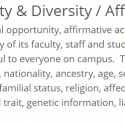History / Location
1855 New Jersey State Normal School
1908 New Jersey State Normal School at Trenton
1929 New Jersey State Teachers College and State Normal School at Trenton
1937 New Jersey State Teachers College at Trenton
1958 Trenton State College
1996 The College of New Jersey
The College of New Jersey (TCNJ) is a highly selective institution that has earned national recognition for its commitment to excellence. TCNJ currently is ranked as the No. 1 public institution in the northern region of the country by U.S. News & World Report, and is considered a best value in higher education by both Princeton Review and Kiplinger’s Personal Finance. TCNJ was also awarded, in 2006, a Phi Beta Kappa chapter, an honor shared by less than 10 percent of colleges and universities nationally.
The College of New Jersey’s academic tradition reaches back to 1855 when it was established by the state legislature as the New Jersey State Normal School. It was the first teacher training school in the state and the ninth in the nation. Governor Rodman Price, sometimes called the founder of the New Jersey Normal School, promoted the idea of a training institute for New Jersey’s teachers and mobilized support among influential state leaders.
Originally located on Clinton Avenue in Trenton, the Normal School flourished in the latter 1800s, expanding both its academic offerings and physical facilities. In 1925, the first four-year baccalaureate degree program was established. This changed marked the beginning of TCNJ’s transition from a normal school to a teacher’s college and was accompanied by a change in physical surroundings. In 1928, a beautiful 210-acre tract of land in Ewing Township was purchased as a new site for the College.
Graduate study was instituted at the College in 1947, and accreditation from various national associations was forthcoming in the 1950s. The enactment of the Higher Education Act of 1966 paved the way for TCNJ to become a multipurpose institution by expanding its degree programs into a variety of fields other than education. By 1972, seventy percent of entering students were selecting non-teaching majors.
In the 1970s, a period of declining enrollments nationwide, the College made a decision to raise, rather than lower, its already high standards. Since that time, the academic profile of entering classes has continued to rise and as a result, the College has become one of the most competitive schools of its kind in the nation. Today the College provides academically prepared students with a challenging undergraduate education and a rewarding residential experience, small classes, and a prestigious faculty.
Academic Schools, Programs and Degrees
The College of New Jersey emphasizes the undergraduate experience. A strong liberal arts core forms the foundation for a wealth of degree programs offered through TCNJ’s seven schools – Arts & Communication; Business; Humanities & Social Sciences; Education; Science; Nursing, Health & Exercise Science; and Engineering. The College is enriched by an honors program and extensive opportunities to study abroad, and its award-winning First-Year Experience and freshman orientation programs have helped make its retention and graduation rates among the highest in the country.
Campus
Known for its natural beauty, the College’s campus is set on 289 tree-lined acres in suburban Ewing Township. The College has 39 major buildings, including a state-of-the-art library; 14 residence halls that accommodate 3,600 students; an award-winning student center; more than 20 academic computer laboratories; a full range of laboratories for nursing, microscopy, science, and technology; a music building with a 300-seat concert hall; and a collegiate recreation and athletics facilities complex. TCNJ has a full-time undergraduate enrollment of approximately 6,200 students (95 percent from New Jersey).
Student Life
The College of New Jersey encourages students to expand their talents and skills through more than 150 organizations that are open to students. These groups range from performing ensembles and professional and honor societies to student publications, Greek organizations, as well as intramural and club sports. The College also offers numerous leadership opportunities through the Student Finance Board, Student Government Association, and Residence Hall Government to name a few.
Athletics
High achievement and scholarship in the classroom have been mirrored by the success of The College of New Jersey’s varsity student-athletes. Since the 1978-79 Lion wrestling team captured the College’s first National Collegiate Athletic Association (NCAA) team championship, TCNJ has established itself as one of the nation’s most successful Division III (non-athletic scholarship) programs. Since 1979, The College of New Jersey has amassed a total of 39 Division III crowns in six different sports. In addition, the Lions have posted 32 runner-up awards, giving the College an aggregate of 71 first- and second-place finishes. That figure is tops among the nation’s 400-plus Division III colleges and universities during the past 30 years. The Lions have also produced 54 Division III CoSIDA Academic All-Americans.
As impressive as the overall athletic record is, TCNJ’s accomplishment as a leader in women’s sports is even greater. Since NCAA Championships were initiated for women in 1981, only TCNJ has won 32 Division III team championships. The total does not include the Lion’s lacrosse championship in 1981 or the softball championships in 1980 and 1981, which were sponsored by the AIAW (Association for Intercollegiate Athletics for Women) prior to women’s sports inclusion in the NCAA. In the fall of 1999, TCNJ’s women’s athletic program was voted as the top Division III institution for female student-athletics by Sports Illustrated for Women.







